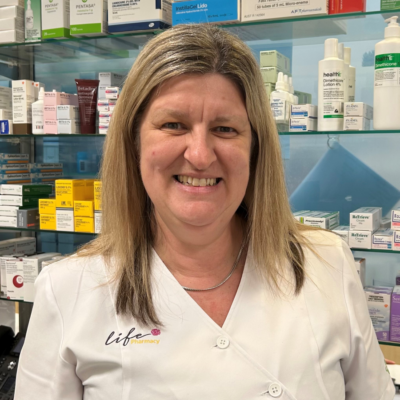A passion for ‘plain English’
Lynda Harris is on a lifelong mission to change the world through better communication. In the process she’s built a hugely successful business – one that’s making a real difference.
881
When asked how plain language can contribute to the success of a business, Lynda Harris’s eyes light up. She has accumulated plenty of powerful evidence during the 23 years that her Wellington-based company Write has been operating – over a wide range of business sectors and involving any size organisation.
One example that immediately sprang to mind is law firm AJ Park that, like most law firms, had a lot of traditional legal jargon in its documents. A user test group, organised by Write, revealed that what individuals interpreted and understood from certain legal correspondence was not always what the writer intended. There was also a lot of negative feedback on the jargon itself.
“That test was the turning point for the firm,” recalls Harris. “They were already working on changing their style to plain English, but that feedback really strengthened the firm’s commitment to reader-friendly communication. They did a great job against the odds.”
Harris says if a large law firm can change “years of habit and a writing style the world’s legal fraternity is renowned for”, then anyone can change. Today there is a strong trend towards plain language in the legal sector – and many other sectors.
Harris also recalls her own personal experience with a trust deed she initially refused to sign because it was so “appallingly written” with “sentences that were three-quarters of a page long. It was incomprehensible. And I was told that to have the document rewritten in plainer, more modern English would cost more time and money.” To cut a long story short, she was stuck between a rock and a hard place with a deposit already paid, and ended up signing.
“The moral of that story is to keep challenging lawyers, or anyone, who presents you with a document that’s incomprehensible,” she says. “Of course, the other lesson is to never sign anything you don’t understand.”
Harris has countless examples of plain English projects Write has managed that were designed to make key communications easy to understand and a major contributor towards an organisation’s efficiency (many you can read about in her book Rewrite, due for release later this year).
The key, she explains, is simplicity. The aim with any of Write’s projects is to make documents as clear and reader-friendly as possible without damaging their integrity. It’s about enabling firms to better connect with clients and remove “those pain points”.
Potential realised
Write has been on a remarkable journey since 1990 when Harris first acquired, what was then, a tiny business that had the rights to offer an internationally successful rapid reading course.
The business also offered a writing course and this is where Harris, who’d always had an affinity with writing, saw huge potential. “From my discussions with clients and potential clients, I could see there was a clear need across both the public and private sectors for better communication skills.”
Early on she also realised that the only way she could teach individuals and firms about better document writing was to first convince them to hand over their documents so she could see where they were going wrong. “That was a turning point for me,” she recalls.
Twenty-three years in the game, with 25 staff, Write is now the biggest player in its field – offering expertise across all aspects of written business communication, including drafting and redrafting, document analysis and user testing, online and offline communication – as well as highly specialised training.
Harris was a schoolteacher in a former life and had no experience at managing a business when she took on Write. She has four children and admits to running her business like a family. “I’ve always been determined to create a culture within the company based on kindness and respect for each other. That’s my philosophy.” People give of their best when they’re happy, she believes, and she likes to think there is a “river of goodwill” running through Write, which the
team can dip into whenever challenges arise.
Harris says positive client feedback is shared liberally among her team – this feedback is what she enjoys the most about the business. Conversely, her worst days are when there are client delays in starting projects but no shift in the deadlines. A massive amount of time and research is invested in many of their plain English projects and delays put pressure on her hard-working team and, inevitably, cashflow. Highs and lows come with any business – but Harris rides through it all on the back of her passion for helping organisations communicate more effectively.
And there are still plenty of opportunities for growing the business. “Growth will come as more and more businesses come to understand that writing is a means to an end,” explains Harris. “On one hand people must realise that their writing can expose them to risk. On the other, if they focus on [the writing], it can be a revolution in the way they operate, and in their success.
“Traditionally, because we’re based in Wellington, we’ve worked a lot with government departments. We also work extensively with legal, financial and other professions but we’ve always believed that there’s a lot more potential in the private sector.”
Compelling reasons
There are three compelling reasons why public and private organisations will look seriously at plain language and clearer communication
Harris believes.
The first is to do with transparency, honesty and openness. “These are qualities that people, as both citizens and consumers, look for and feel
good about.”
The second is about efficiency. “You can save massive amounts of money and grief if you have a major focus on how you communicate,” she says. Even something as simple as ‘highly informative’ email subject lines or document headings can make a massive difference, she adds. “So you can pick up a document and immediately get the gist of it through the headings alone.”
The third reason to go down the plain English road is about the bottom line – “making and saving money, improving reputation and image. Plain English says to customers ‘we are approachable, we are human, we will solve your problems in ways that you understand and we will not hide behind our language’,” says Harris. “It’s simply better marketing.”
It’s also potentially better economics – one client saved a staggering $1.5 million of staff time, largely by replacing one particular form that had a 100 percent error rate. Not a bad return on investment!
There is no organisation or business that wouldn’t benefit from going through the plain English process. Harris believes the message is slowly getting out there, and awareness is greatly assisted by the annual WriteMark Plain English Awards, which Write sponsors through its WriteMark brand (Write’s international quality standard that checks how well documents work for the reader). A highlight of the Awards evening is always the ‘Brainstrain’ People’s Choice Award – perhaps the ultimate incentive for an organisation to change the way they communicate.






